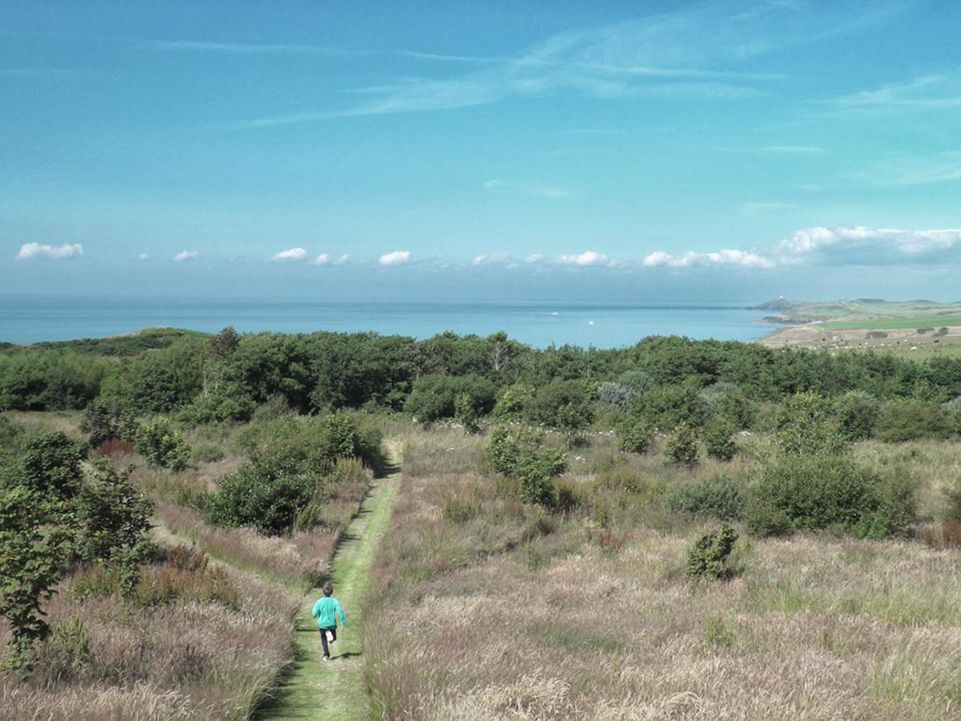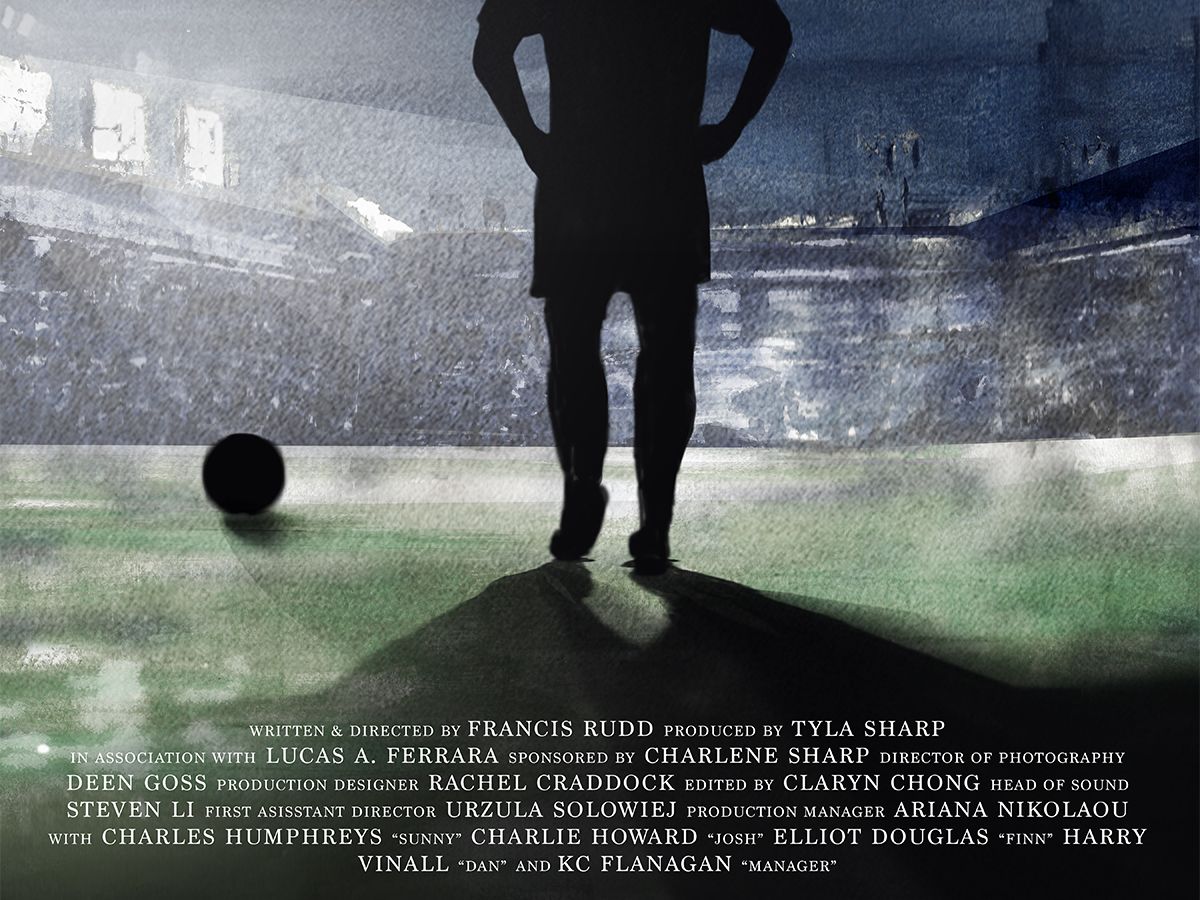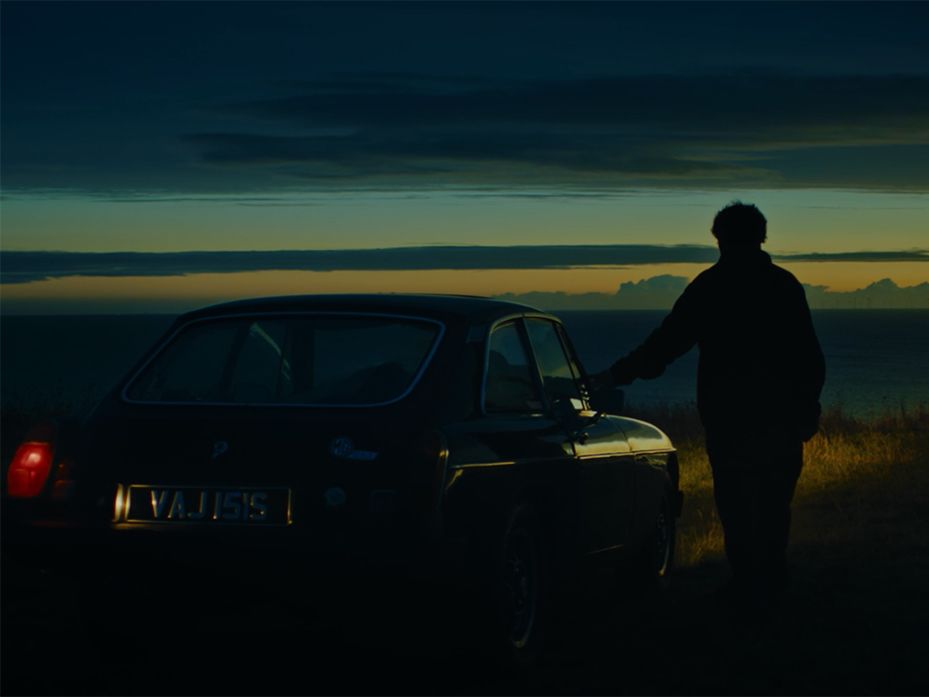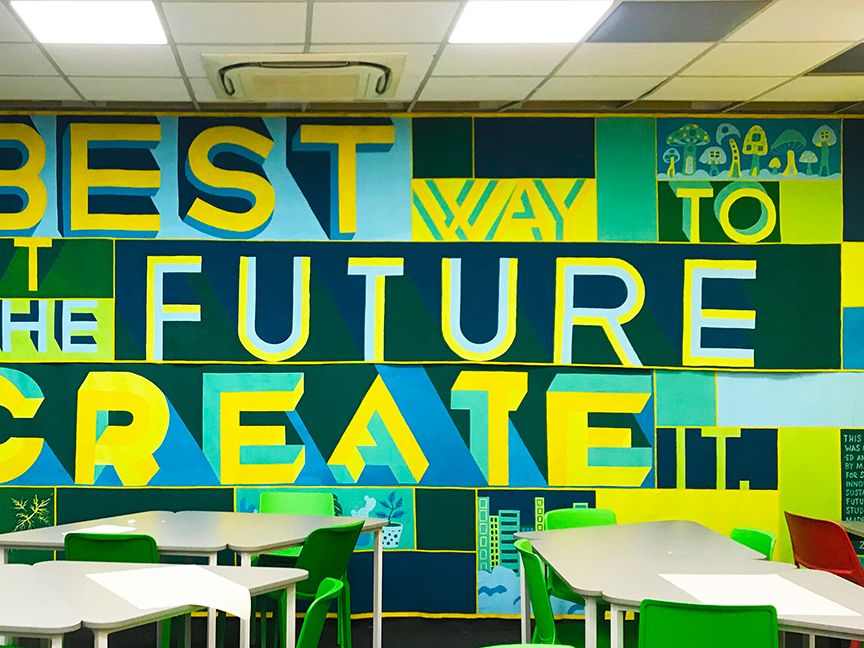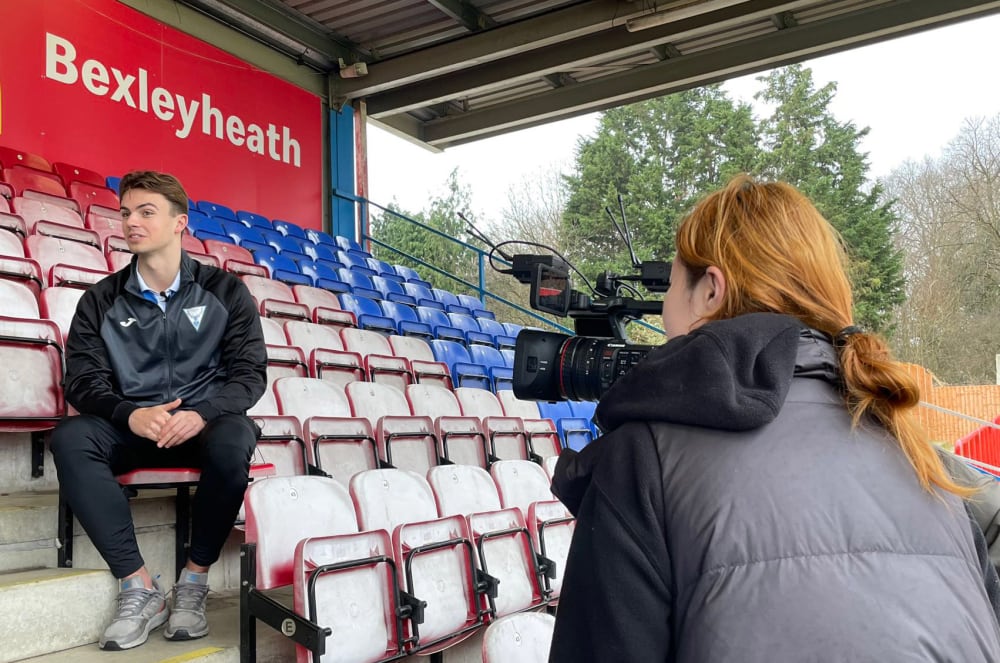
MA Television students collaborate with Soccology to explore mental health in sport
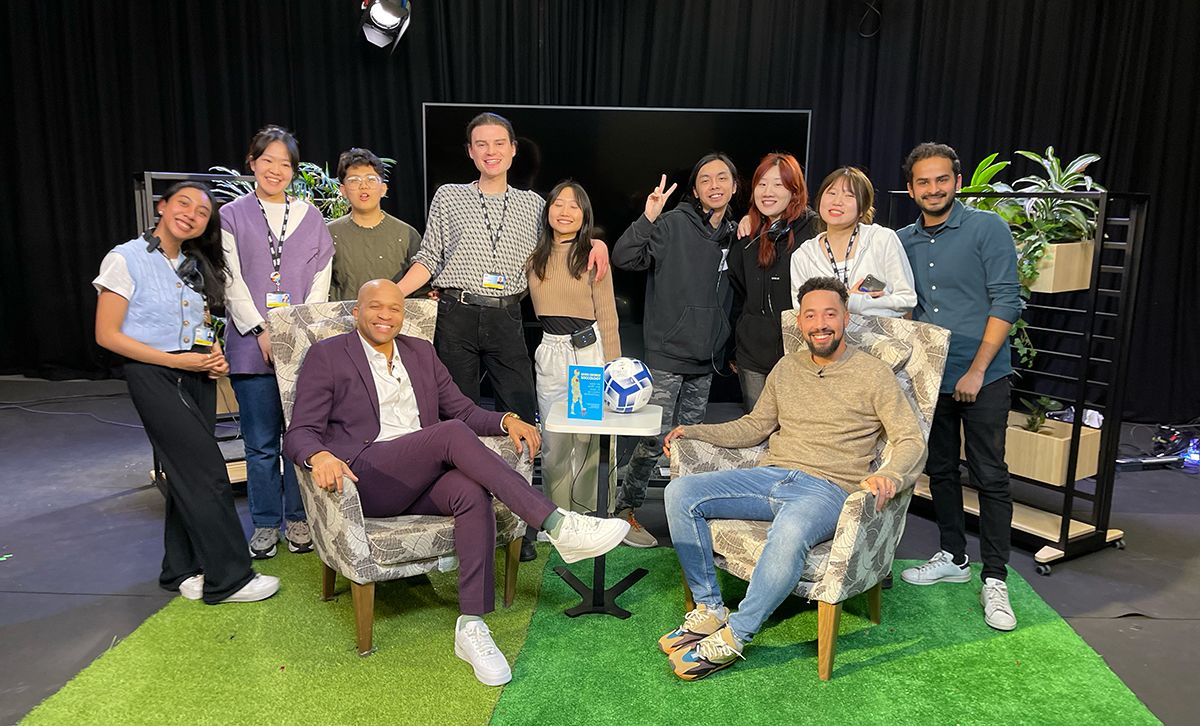
- Written byChloe Murphy
- Published date 16 August 2023

Working with external partners is a crucial part of life as a creative practitioner. At London College of Communication (LCC), our courses emphasise the importance of collaboration, supporting students to gain the experience they need to take the next step in their professional journeys.
Earlier this year, students on our MA Television course were given the opportunity to work with Soccology: an innovative service that uses sport to develop mental health awareness and emotional literacy.
Underpinned by core principles of counselling, psychotherapy, neurolinguistic programming and neuroscience, Soccology delivers programmes using art, therapy, debate literacy and football to engage those with diverse interests, needs and learning styles – many of whom encounter challenges to accessing mental health support ranging from financial barriers to social stigma.
Working in small groups, MA Television students worked with former professional football player, counsellor and Soccology founder Kevin George to produce The Soccology Show, which aimed to discuss a range of issues relating to mental wellbeing within the football space.
Filming both in the studio and on location, they synthesised their skills and collaborated across the production process to develop 2 episodes that not only captured key conversations relating to the Soccology service, but also demonstrated technical ability and broadcasting technique.
We chatted to 2 of the students involved in the project, Pranav Dali and Jeongyun Moon, about shaping platforms for open discussion, gaining experience across different production areas, and exchanging ideas to bring a broadcast to life.
Ryan Smith | The Soccology Show
Tell us about your creative practice.
Pranav: I’m a filmmaker and photographer with a keen interest in documenting stories of human interest. I've always considered myself a storyteller, and visual imagery has been my preferred medium of expression to portray my thoughts or perspective on the world and how I see things.
Spontaneity drives my creative process, allowing me to capture authentic and raw moments in a quest to develop my own unique visual language and aesthetic.
Jeongyun: I’m interested in exploring how TV programmes are crafted from beginning to end.
The great thing about my course is that we have chance to experience every role throughout the production process, which has helped me to develop better understand all aspects of it.
Why did you decide to study an MA in Television at LCC?
Pranav: I wanted to learn factual filmmaking and short-form video production techniques across different formats that weren’t restricted to purely documentaries or films. MA Television was one of the few courses I found that ticked most of the boxes for me in that regard.
It’s a very practical, hands-on course which has enabled me to experiment with various programme styles spanning from news production and sports features to social impact stories and short documentary films.
I chose LCC primarily for its location, diversity, and culture, along with the opportunities and professional support that UAL provides for its students throughout our studies, and the reach of its global alumni network.
Jeongyun: I’m passionate about working in television as a director, and I felt that MA Television was the right course for me to pursue my career.
LCC has a great reputation, so I believed that studying there would offer plenty of opportunities and resources.

How did you first find out about the Soccology project, and why did you decide to get involved?
Pranav: As part of our collaborative unit, we partnered with Soccology’s founder Kevin George to produce a talk show that could tackle the issue of mental health in football.
I believe that mental health is a crucial aspect of every individual's wellbeing, especially for athletes in a community where it isn’t spoken about as much. Having an opportunity explore key issues around mental health in football while providing a platform for open discussion felt really meaningful to me.
What was the aim of the project?
Pranav: Working with Kevin, we were asked to produce 2 episodes of The Soccology Show that aimed to shed light on the profound impact of football while going beyond the surface level.
We wanted to showcase how Soccology harnesses football's potential to enhance mental health and emotional literacy.
Jeongyun: Because Soccology combines football with mental health, we aimed to raise people’s awareness, explore effective tools and systems to help manage stress and anxiety through football, and look at the cultural impact of mental health within the sport.

What were your roles in the project?
Pranav: My primary roles for were researcher, editor, and on-location cameraperson.
As a researcher, I explored Kevin's extensive background as both a player and a psychologist, along with that of our guest for the studio shoot, Ryan Smith. As a former Arsenal player, Ryan faced a number of challenges after his professional career was shortened due to a knee injury.
Taking on multiple roles and responsibilities enabled me to gain experience across different levels at different stages within the project. As a Vision Mixer in the studio, the role held a significant responsibility in achieving the final visual output.
Jeongyun: My main role was producer; however, due to the limitations of working in a team of 10 people, we also had on multiple responsibilities, so I also worked on lighting during location shoots and operated the camera in the TV Studio.
What sparked your initial ideas, and how did you develop them further?
Pranav: During our first meeting, we presented our initial vision for the show, which included our ideas for the visual approach, set layout, and possible working titles. We illustrated our intention to highlight the cultural influences on mental health in football; however, by being receptive to feedback from the client, we were able to refine our focus to explore how football can be used as a tool to improve mental health.
Our initial ideas and further development came from effective communication, clearly understanding the brief and needs of our client, and a willingness to work towards our shared goal which propelled us to work and make progress.
Jeongyun: With the aim of making a talk show, the entire class was divided into 2 groups of 10 people, and everyone played a vital role in both studio and location shooting.
Making a TV show heavily relies on teamwork, and from producer, director and vision mixer to set designer, light designer and many other roles, we all exchanged our ideas to bring the show to life.
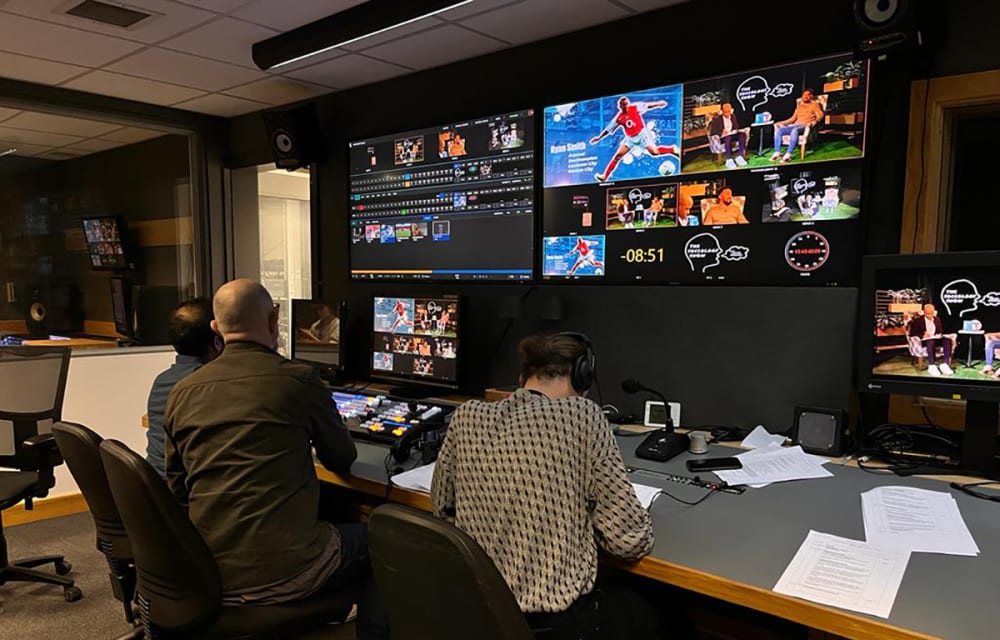
What were the highlights of your experience?
Pranav: One of the biggest highlights was getting to meet former Arsenal player, Ryan Smith, as well as the players and coaches from Erith and Belvedere Football Club – it was incredible to hear them speak about the pressure to perform and to compete, as well as their experiences of the Premier League.
Jeongyun: I think the highlight of my experience was when our client watched the final work and he truly liked the show we’d made.
What have you most enjoyed about taking part in an external collaboration?
Pranav: What I enjoyed most about this experience was that it enabled our class to work as an independent production team. Each of us took on different roles and responsibilities both in the studio space and on location, and we were able to bring out the best in each other.
Together, I think we created something powerful that can make a real difference.
Jeongyun: I was very happy to collaborate with an external partner, and it was truly an honour to feature well-known guests in our project.
I think the most enjoyable part was seeing the outcome of our efforts as an independent production team, and realising that we created something meaningful. It made me very proud to bring the show to life.
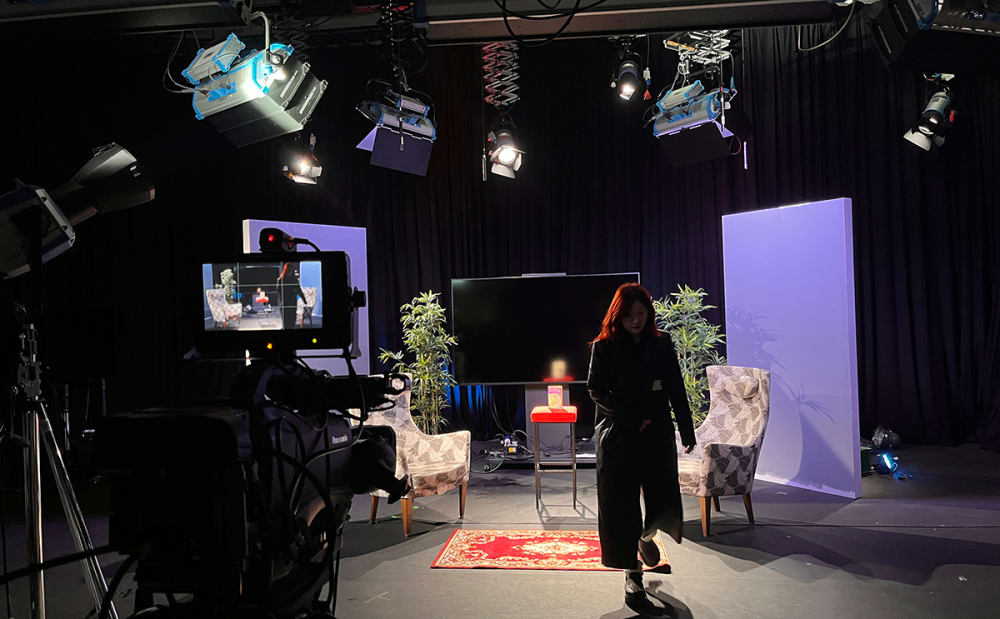
What have you most enjoyed about your experience as an LCC student so far?
Pranav: For me, I’ve enjoyed becoming part of a diverse and creative community. The opportunity to connect with friends from various backgrounds and disciplines has enriched my perspective and sparked inspiration within me.
Our tutors and technicians have been instrumental in guiding me both personally and academically, while access to facilities like the TV Studio and camera equipment from the Kit Room has been invaluable.
I've had the opportunity to work on exciting projects, including securing a part-time role at CSM through ArtsTemps, which has opened doors to further networking and career opportunities within UAL. Overall, my experience at LCC has been both fulfilling and transformative.
Jeongyun: I think the TV Studio is my favourite space at LCC – it’s always exciting to work there, and is a very good place for students to learn.
What tips would you give to prospective students who are interested in exploring the world of television?
Pranav: I’d say that the meaning of television is constantly evolving and changing.
If you’re seeking to join the broadcast media industry, and want to study on a practical course that offers experience in working in small production teams across different genres of television and entertainment - be it news, sports features, documentaries or impact stories – MA TV at LCC is the course for you.
Jeongyun: In my experience, the field of television is all about teamwork – so whatever you do and whatever project you work on, don’t be afraid to ask for help.
Related links:
- Explore the work of Soccology.
- Learn more about MA Television at London College of Communication.
- Find out more about the work of our Screen School.
